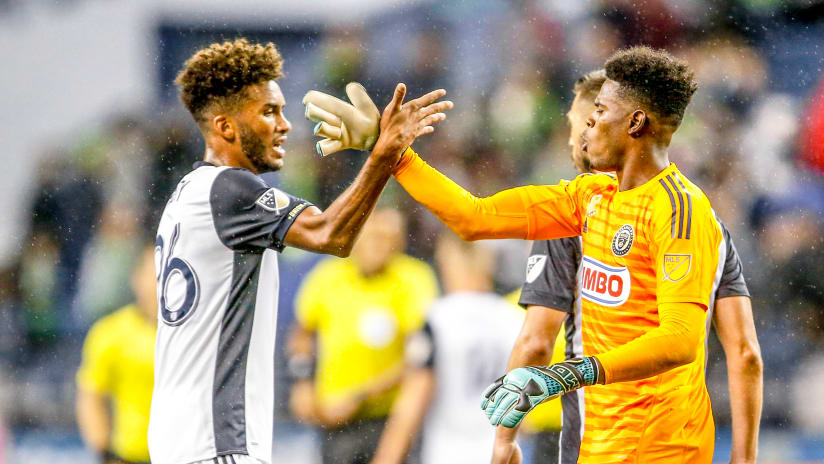The last time Will Johnson recorded five shots in a game was way back in April of 2014 when he scored in Portland Timbers’ 1-1 draw against a team that no longer exists.
Johnson ripped off five against last night against Philadelphia Union in the US Open Cup — fully half of the shots Orlando City got off — and Jim Curtin is likely perfectly fine with that number. The Canadian midfielder has 30 regular season MLS goals in nearly 21,000 career minutes. On a team featuring Dom Dwyer, Sacha Kljestan, and Josue Colman, giving up shots to Johnson is like letting your friend’s little brother take an open shot in pickup basketball. If he hits it, he’ll be as surprised as everybody else.
That Johnson was the main offensive threat for Orlando City says a lot about how the Union controlled their US Open Cup quarterfinal match. In soccer, you will give up chances over the course of 90 minutes, but you can set a team up to try and give up certain types of chances and prevent others. The Union did not want Kljestan creating good looks for others, and they definitely did not want Dwyer to have space in the box.
Furthermore, they wanted to break Orlando’s first wave of pressure quickly and progress the ball to isolate their wingers high up the field.
All boxes checked.
When Orlando City head coach James O’Connor pulled Chris Mueller at halftime for Dillon Powers, he was acknowledging that the Union’s midfield was simply too good to stop without an extra body in the center. Ale Bedoya was drifting all throughout the right third of the pitch, stretching Orlando horizontally so bodies could not be committed to stopping Borek Dockal and Haris Medunjanin. The latter was then free to dictate the shape of the game. Look at his passing chart and the amount of ball progression therein.

This is what a passing chart in a practice drill looks like for the Bosnian. Invisible in the image is all the movement and spacing that opened the pitch for Medunjanin throughout the opening forty-five minutes.
Let’s look at a play in the 25th minute that exemplifies the Union’s ability to turn the Lions’ defense into their own personal marionette.
It begins with Mark McKenzie’s willingness to play a difficult pass through the center. Jim Curtin highlighted McKenzie’s work with the ball in his post-match presser, and the key thing on this play is that, even if the ball he gives has a bit of bounce, the center back is adhering to the Union’s philosophy by trusting his playmakers. Even with a man on him, Borek Dockal is able to play a quick exchange and advance the ball. The Union then use numbers on the right to shift Orlando’s defense away from Haris Medunjanin, and this means that when the Bosnian becomes the extra man in attack — what the Union call ‘man-more’ — he can open his body and hit Rosenberry behind the defensive line. Everything about this play, from McKenzie’s confident pass with his off-foot, to Dockal’s calmness under pressure, to Rosenberry’s movement all the way into the box, to Medunjanin’s immediate first look forward is philosophically on brand for the Union, and no matter how good or bad you think Orlando was on the night, that’s evidence that work on the practice fields is translating to game day.
Let’s look at one more play in which Philly draws the defense to one area then has the patience to find space to attack.
This time the Union work up the left, pulling in Orlando defenders through the directness of Fafa Picault. Notice how both Haris Medunjanin and Borek Dockal look to progress the ball as quickly as possible when it’s dropped to them. This is both part of Philly’s plan each match and a good antidote to a James O’Connor team that wants to press negative passes. Dockal’s long, early pass into the corner doesn’t give Orlando time to reshape, so all they can do is hope to crowd out the play before the point of attack changes.
They do not. Gaddis finds Bedoya, who, notably, has put himself in a good spot to be a pivot with Medunjanin supporting play on the near side.
With Orlando’s defense struggling to regain their shape, Dockal can glide through the center unmarked to oh-so-nearly finish the play.
Like Orlando on Wednesday, the Galaxy are not a high pressing team that disrupts buildup play. If the Union can similarly manipulate the opposition defense this weekend, they can create great opportunities to score early and often on a porous defense.
Then it’s all about stopping Zlatan.













